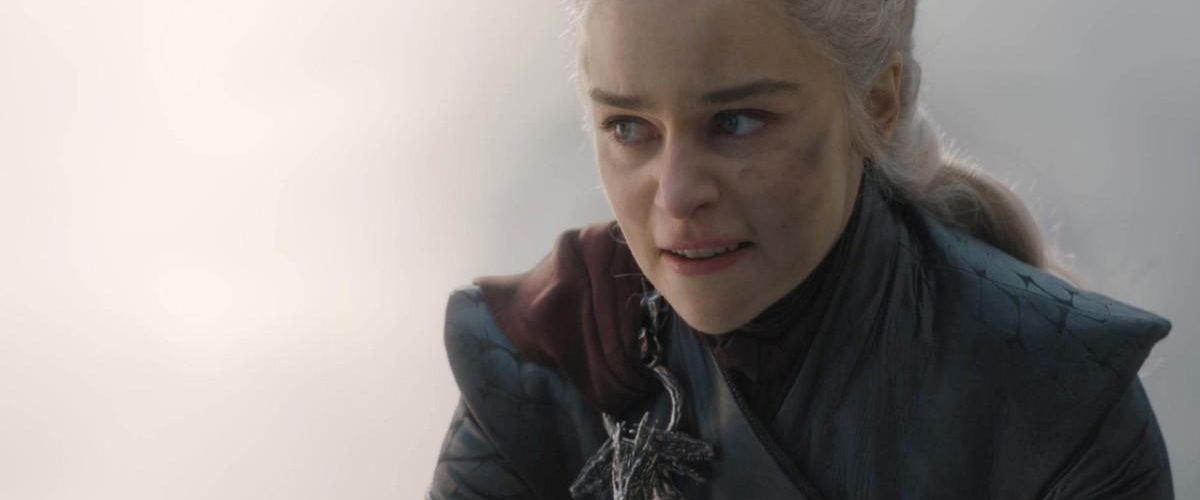Disclaimer: spoilers for Game of Thrones (and Breaking Bad) ahead
When engaging with fiction, we should not turn off our conscience. This seems like an incredible obvious statement to make, but it’s increasingly uncommon sentiment, especially in the age of the anti-hero.
Far too many people watch anti-hero dramas as though it’s all Grand Theft Auto. What’s the difference between suspending disbelief and suspending our moral sense? We’re supposed to root for the bad guys, right? Isn’t that how this works? Whereas suspending disbelief is an act of the imagination that can draw us into new worlds through which we can engage with a compelling narrative, suspending decency is a very dangerous step. And the best artists know this, even in the age of HBO.
This first occurred to me with Breaking Bad. Someone told me that Breaking Bad was like Sons of Anarchy, which confused me because they seemed nothing alike – Sons of Anarchy is so explicitly Hamlet, whereas Breaking Bad is Macbeth. In 5×05, Walter, Jesse and Todd pull off an epic train heist to acquire more methylamine to fuel their drug empire. The audience is rooting for the anti-hero protagonists all the way through, and they accomplish the impossible train heist, which is a real feat to watch, and without anyone noticing – until they see a young kid on a bike. Todd waves, and then shoots him as Jesse screams in protest.
It was when my wife told me that a friend had remarked, “yeah, that was so awful… but, I mean, they had to do it… right?” that I truly realized what Vince Gilligan was doing. The death of this child is what ultimately sets the end of the series in motion. Jesse spirals out of control with a guilty conscience, while Walt continues whistling on his merry way. This is the breaking point, where the showrunner has to make it so undeniably obvious that the hero is an anti-hero, that the protagonist has actually become a really bad guy – and even then, the audience takes a while to come around.
Game of Thrones is full of characters who are far, far worse than Walter White, and the worst horrors of Vince Gilligan’s comparatively restrained dramas would barely cause one to bat an eye on Game of Thrones. While people line up an pick a team, pick a ruler to root for (that’s the whole point of the game, right?) it takes much, much more horrific acts in order to break the audience from their spell, like Stannis Baratheon burning his own daughter alive at the stake – a scene that Game of Thrones handles with reaction shots from the parents amidst the brutal and absolutely unbearable screaming, foregoing the usual gory visuals for an even more horrific effect. On this show, in order to make it undeniable that someone is beyond the pale, the dial needs to be turned up to 15 or 16, after six seasons of regular carnage, objectification, brutality, and a world with barely a hint of justice or morality.
Until Season 7 and 8, when the notion of a redemption arc creeps into Game of Thrones from the edge of its known world onto centre stage in Westeros. (I don’t think I would have made it anywhere near this far before turning it off, were I starting today….) From Tyrion Lannister to Sandor Clegane to Jaime Lannister, it’s almost as hard to recall the origins of these characters as it is to remember all the other major characters whose corpses litter the first six seasons. Redemption is a fascinating theme I never would have expected in this show, but my concern here is not redemption so much as its opposite – the fall.
Why were so many people so surprised when Daenerys Targaryen massacred the entire city of King’s Landing? (Most of all, I’m guessing, Elizabeth Warren.) Why did so many people find it so implausible when she ignored the bells?
They were cheering for her. That’s the game, right? Pick a team, root for the person who you want to be on the throne? People cheered for her in 3×04 when she told the unsullied to “slay the masters,” even after she had control of their army. People cheered for her in 4×04 when she crucified the masters in Meereen, even as Ser Barristan Selmy counsels her to show mercy. After the Sons of the Harpy kill Selmy, she rounds up the nobles of Meereen and feeds one to the dragons as an interrogation technique, without any concern for his particular innocence or guilt. The Season 7 execution of the Tarly men was a focal point of 8×02. And if you look to any of the times she did show mercy or chose a less violent means of conquering, it was because her advisors strongly urged her to do so – advisors who are all now dead or alienated from her. I mean, just listen to the music that gets played during half of these scenes.
Is it really hard to believe that Daenerys would ignore the bells? She’s been ignoring the bells all along, and this is only a surprise to viewers who themselves have become accustomed to ignoring the bells. Watching an anti-hero drama and cheering the protagonist is like attending a Shakespeare play and cheering for Macbeth, or reading Paradise Lost and cheering for Satan.
Narrative fiction, literature, brings about self-reflection and self-revelation. By engaging with literature, we learn something about ourselves. It is dangerous to engage with our conscience disabled – it is a journey without a compass. We must not become desensitized to the horrors, or explore character without conscience, or else we learn the wrong things. We should never cheer for justice without mercy, or take pleasure in murder or massacre. Or else, we, too, may learn to ignore the bells.

